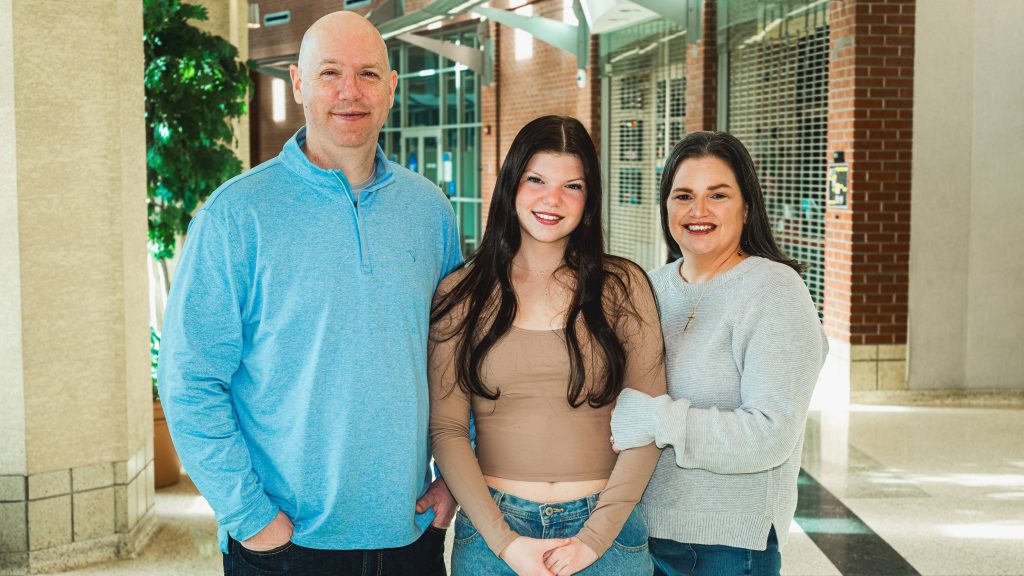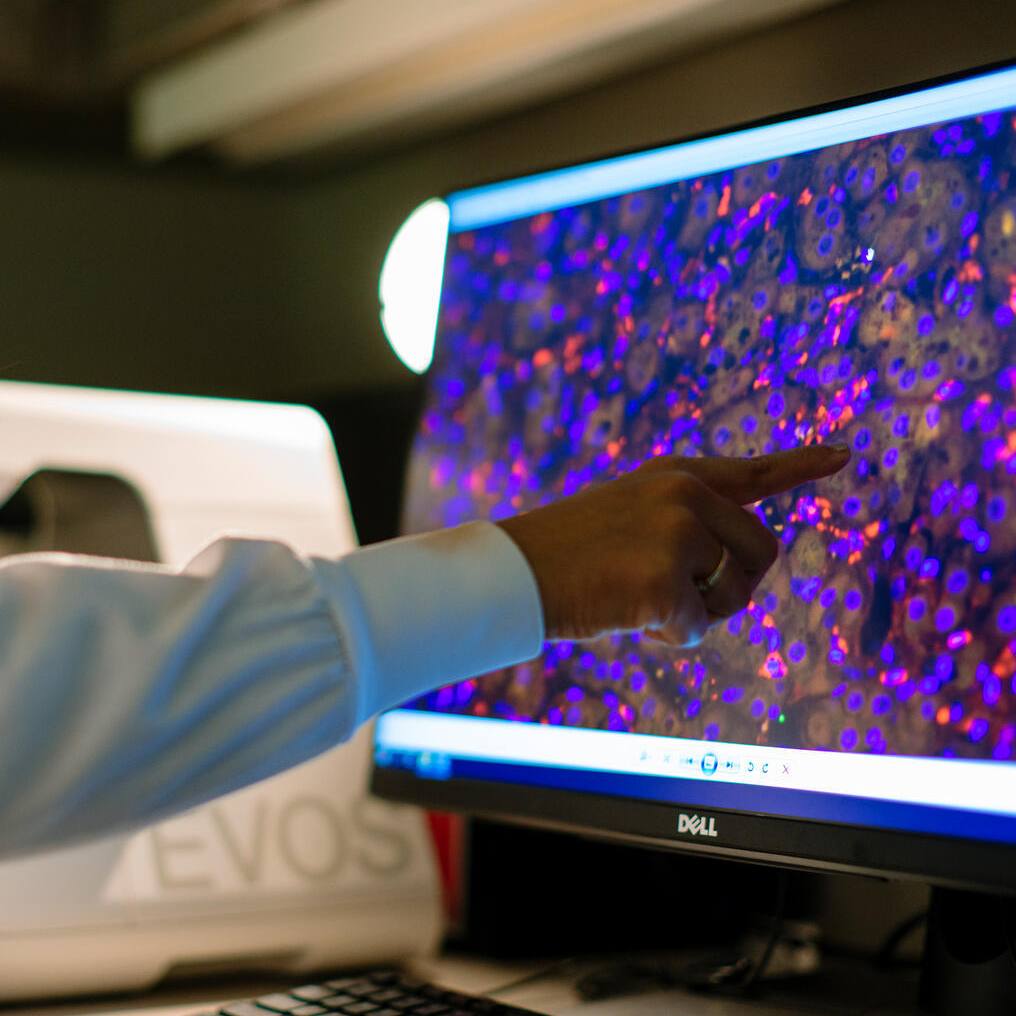
At just 19, Angela Bristow's life took an unimaginable turn. A college student with her future ahead of her, she was thrust into a world of MRIs, surgeries and grueling treatments when diagnosed with ependymoma, a cancer that typically affects the brain and spine. In her case, however, the tumor was located near her coccyx — an exceptionally rare location for this type of cancer.
"I'll never forget how difficult the recovery was after that first surgery to remove the tumor," Angela recalls. "I ended up with an infection while still recovering at home with my parents. I tried to go back to college afterward, but being away from my support system made everything so much harder."
Looking back on those early days, she shares, "Doctors didn't know what we were dealing with. I wasn't angry — I just kept going because that's all I could do."
Life regained some normalcy after her initial recovery. She met Chris — her future husband — and started planning a future. But less than a year into their marriage, the cancer returned, this time requiring surgery and 30 days of radiation. Two years later, the disease spread to her pelvic lymph nodes.
This marked a turning point. Angela sought a second opinion at Mayo Clinic, where her care team removed 13 lymph nodes, sparing her from further therapies. "Mayo became my anchor," she says. "For the first time, I felt like I wasn't fighting this alone."
Over the next two decades, Angela’s life became a cycle of surgeries, treatments and recoveries, as tumors returned every two years. Yet, she found strength in her "dream team" at Mayo Clinic, including her palliative care team, who are dedicated to easing suffering by managing symptoms associated with serious illness. Beyond medical care, they provide compassionate support to patients and their loved ones during life's most trying moments.
"I have the distinct privilege of supporting Angela as she navigates the challenges of living with cancer," Dr. Liz Sokolowski, Angela’s palliative care physician, says. "From our first meeting, I was deeply moved by her resilience and strength, and how she continues to maintain hope and her sense of humor. Patients like Angela are true heroes. They teach us daily about courage, and they remind us why we do this work."
Advances in treatment provided new hope. What began with surgeries and radiation evolved into cryoablation, thermal ablation and, more recently, oral chemotherapy. Even when the cancer metastasized to her lungs a decade ago, Angela faced each recurrence with determination, balancing the fear of the unknown with acceptance. "Cancer doesn't own me," she affirms. "It's part of my story but not the whole story. I'm still learning, still growing and still fighting. There's a reason I'm here."
Angela's journey is one of resilience, self-advocacy and profound partnership — with her care team and her family. Chris has been her unwavering support, whether staying overnight in hospital chairs or managing wound care. Their daughter, now a teenager, has grown up witnessing her mother's courage. "She was just 3 months old when she stayed in my hospital room. She's my light, and Chris is my rock."
Now, at 48, Angela speaks with heartfelt wisdom.
"I wish I could tell my 19-year-old self it will be OK. Cancer doesn't define life; it's just a part of it," Angela says. For those walking a similar path, she offers this advice: "Advocate for yourself, build a trusted care team, and don’t let cancer take more than it has to. You are stronger than you think."
Tips for navigating long-term cancer care
Managing cancer can feel overwhelming, but with the right tools and mindset, balance and strength are possible. Whether you're newly diagnosed, in treatment or in remission, here are Angela's practical tips:
- Stay proactive with checkups.
Maintain regular checkups with your healthcare team, even in remission. Work with your healthcare professional to set a personalized schedule for follow-ups and tests. Many hospitals offer apps or portals to help manage appointments and stay on top of your care. - Explore integrative therapies.
Cancer care extends beyond medical treatment. Services like acupuncture, meditation or aromatherapy can help manage side effects and improve well-being. Ask your care team about available options. - Build a support network.
A strong support system can make all the difference. Lean on family, friends or support groups to stay connected. If in-person groups feel daunting, consider online options or platforms like CaringBridge for sharing updates and receiving support. - Consider clinical trials.
Clinical trials can offer access to innovative treatments and contribute to advancing cancer care. For patients with rare cancers like ependymoma, organizations like Collaborative Ependymoma Research Network (CERN) provide valuable resources and information about ongoing trials. Speak with your oncologist to explore research organizations that may help guide your treatment options. - Tap into health resources.
Cancer education centers often provide free workshops, nutrition guidance and creative outlets like art therapy. These resources can keep you informed and engaged in your care. - Care for your emotional health.
Therapy offers a safe space to process emotions and build coping strategies. If traditional therapy isn't for you, mindfulness practices like deep breathing or meditation can reduce stress. Activities like a walk in the park, a lunch outing or a favorite hobby also can lift your spirits. - Personalize your journey.
Cancer is deeply personal, affecting everyone differently. Begin with one or two strategies that feel right for you, and gradually explore more as you're ready. Small, intentional steps can help you build a meaningful and well-supported life.
Angela's story is a reminder that while cancer may shape your path, it doesn't define your destination.
"No matter what, there is always more life to live, more love to give and more reasons to keep fighting," Angela says.







